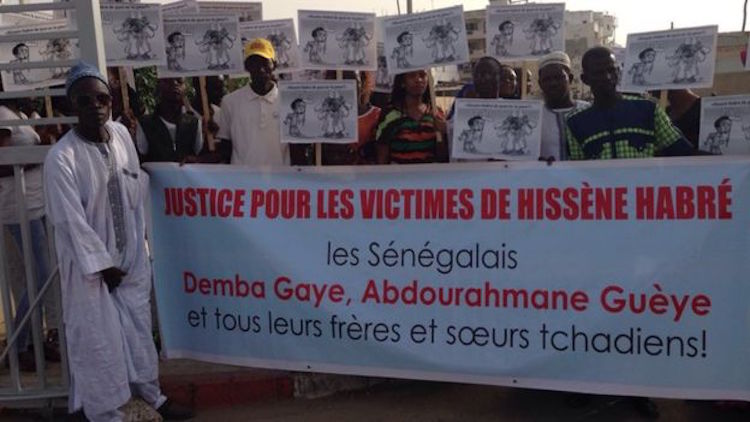DAKAR (IDN | GIN) – Former president of Chad, Hissène Habré, was sentenced May 30 to life behind bars, ending a long journey for justice by his victims and victims’ relatives who filled the court.
The specially convened African Union-backed court in Senegal convicted him of rape, sexual slavery and ordering killings during his rule from 1982 to 1990.
Victims and families of those killed cheered and embraced each other in the courtroom after the verdict was read.
It was the first time an African court in one country had tried a former ruler of another country for human rights abuses, under the application of universal jurisdiction. The three-judge panel, with two judges from Senegal and one from Burkina Faso, used Senegalese law to reach the verdict.
During the trial in Dakar, Senegal, prosecutors presented secret-police archives that recorded the names of 12,321 prisoners, interrogation reports and information about the deaths in detention of more than 1,200 people.
“The systematic torture at such a large scale was his way of governing,” said Gberdao Gustave Kam, the presiding judge, who read a summary of the verdict. “Hissène Habré showed no compassion toward the victims or any regret about the massacres and rapes that were committed.”
The ex-president sat silently during the 90-minute hearing, then raised his fists to supporters and shouted for several minutes until he was led away by armed guards.
The fact that the trial even took place was considered a victory for many of the victims of Habré’s government.
According to a Chadian truth commission, Habré’s government killed more than 40,000 people who were believed to be enemies of the state, or who had merely come under suspicion.
Judge Kam recounted how Habré was directly involved in interrogations and torture, sometimes inflicting the abuse himself or ordering it by phone or walkie talkie.
“The verdict sends a powerful message that the days when tyrants could brutalise their people, pillage their treasury and escape abroad to a life of luxury are coming to an end,” said Reed Brody, a Human Rights Watch researcher who helped to investigate the crimes.
“This is a testimony to the perseverance of a band of victims, activists and supporters who made this trial happen,” Brody said, crediting “the sweat and determination of the survivors.”
Evidence heard by the court, known as the Extraordinary African Chambers, included tales of torture and putrid conditions in prisons where Habré’s enemies were taken, sometimes without being given any reason for their detention.
“After years of struggle and many setbacks on the way to justice, this verdict is as historic as it was hard-won,” said UN High Commissioner for Human Rights Zeid Ra’ad Al Hussein. “In a world scarred by a constant stream of atrocities, the ramifications of this verdict are global.”
Habré took power during a coup that was covertly aided by the United States, and he also received weapons and assistance from France, Israel and the United States to keep Libya, to the north of Chad, and Col. Muammar Gaddafi, then the Libyan leader, at bay.
U.S. Secretary of State John Kerry called May 30 verdict “a landmark in the global fight against impunity”.
Referring to the U.S.-Chad Cold War relationship, Kerry said: “As a country committed to the respect for human rights and the pursuit of justice, this is also an opportunity for the United States to reflect on, and learn from, our own connection with past events in Chad.”
Suleyman Guengueng, a political prisoner during the Habré years who documented the abuses he saw while in detention, was in the courtroom to hear the verdict.
“To all the dictators violating human rights in the world, this can happen,” Guengueng said. “To all their victims, don’t shut your mouth, open your mouth.”
Habré’s lawyers now have two weeks to launch an appeal. [IDN | INPS – 31 May 2016]
Photo: Protest by Senegalese for Justice
IDN is flagship of the International Press Syndicate.

